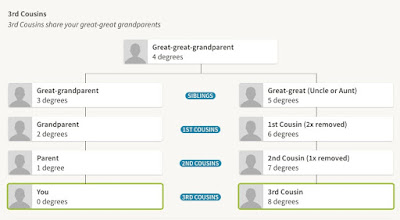How will you celebrate New
Years Day? Well, let me tell you about
my family tradition.
My maternal grandparents –
George & Mary Watson migrated from Cleveland, MS. When relatives migrated from the south they
would stay with my grandparents for a little while until they found a place of
their own.
Mary (aka – Bigmama) felt it
was very important for the family to gather for the first dinner of the New
Year. It started with just my
grandparents and their children. As my mom & her siblings began to have families of their own the tradition
continued & grew. My parents, uncles, aunts and first
cousins would gather at Bigmama’s house.
Our extended family lived close by – great grandmother and a great aunt
lived around the corner, other great aunts & uncles lived downstairs and
next door and other cousins. It wasn’t long before the
family dinner grew to an annual New Years Dinner at Bigmama’s house. You could not bring a dish to the
dinner. Bigmama took pride in cooking
for everybody. Since the house was
small, we all made sure we got there early to get a seat or be first in line to
get food.
When it was time to get
started, we all gathered around in a circle, which expanded into two
rooms. We began with a song, “Don’t
Forget The Family Prayer”. The lyrics
were – “Don’t forget the family prayer,
the Lord would love to meet you there.
When we gather in the evening, please don’t forget the family prayer”. After the song, Bigmama would lead off in
prayer for the family and the rest of us would join in. Looking back now, those were some powerful
prayers.
Mealtime! The menu consisted of Blackeyed Peas,
Cabbage, Sweet Potatoes, Chitterlings, Corn Bread & a homemade cake.
After a while Bigmama’s place
was too small. The families had grown
tremendously and she was getting older.
Then one day she came to me and said she need to
pass the baton and wanted me to carry it on.
So, for the past 15+ years I have hosted New Year’s Dinner. The menu has changed slightly – no more
chitterlings!
This is one family legacy
even though the crowd has dwindled, I enjoy carrying it forward and will one
day pass the baton. But for now, I do it
with love and for its tradition and family legacy.
Happy New Year from
Mississippi Rooted!
 |
| Google Images |
























